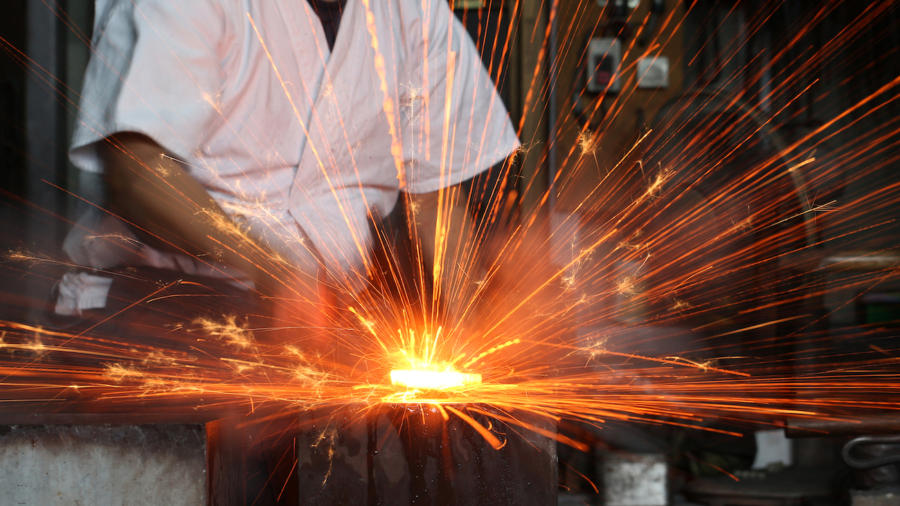The United States reached an agreement with Japan on Monday to lift the 25 percent tariff imposed on Japanese steel products by Trump during his presidency, according to U.S. Trade Representative and Department of Commerce officials.
The agreement will allow up to 1.25 million tons of Japanese steel imports per year into the U.S. market without being subject to Section 232 tariffs, starting April 1.
It stated that Japan would begin implementing relevant domestic measures within six months, “such as antidumping, countervailing duty, and safeguard measures, or other measures of at least equivalent effect,” to create more market-oriented conditions for steel.
Gina Raimondo, the U.S. commerce secretary, talked up the benefits of the agreement with Japan.
It will “strengthen America’s steel industry and ensure its workforce stays competitive, while also providing more access to cheaper steel and addressing a major irritant between the United States and Japan, one of our most important allies,” Raimondo, said in a statement.
“Today’s announcement builds on the deal we struck with the EU and will further help us rebuild relationships with our allies around the world as we work to fight against China’s unfair trade practices and create a more competitive global economy for America’s families, businesses and workers,” she said.
Aluminum imports will remain to be subject to a 10 percent tariff under the U.S.-Japan agreement.
In 2018, former President Donald Trump imposed tariffs of 25 percent on steel and 10 percent on aluminum imports from several countries, including the European Union and Japan, citing national security concerns.
The Biden administration had previously removed tariffs on EU steel and aluminum in October last year. In exchange, the EU halted its retaliatory tariffs against U.S products like whiskey, motorboats, and Harley-Davidson motorcycles.
The United States did not specify the volume of duty-free steel that will be allowed into the country under the EU agreement, but sources familiar with the matter estimated that annual volumes exceeding 3.3 million tons would be subject to tariffs.
U.S. steel industry executives had voiced concern that the Biden administration would negotiate too much access for foreign steelmakers, which might result in a flood of imports as they invest billions of dollars in new capacity.
But they expressed relief that the deal restricts Japanese imports to about their two-year average from 2018 and 2019, a level that reflects the impact of Trump’s 25 percent tariffs.
Unliked the EU deal, which added past tariff exclusions to the bloc’s quotas, Japanese steel imported under past tariffs will count against Japan’s quota volumes.
Reuters contributed to this report.
From The Epoch Times

